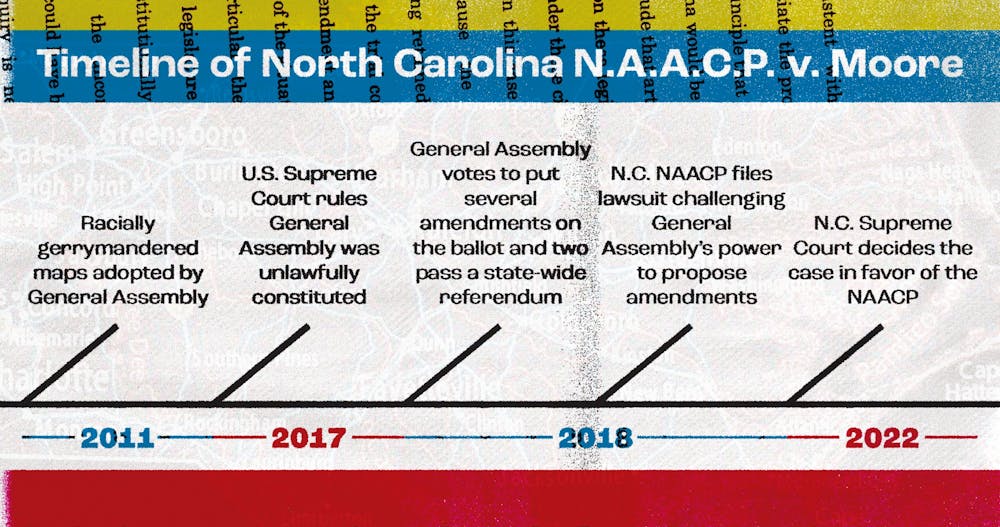A racially gerrymandered legislature cannot propose amendments to the North Carolina Constitution, according to an Aug. 19 ruling from the N.C. Supreme Court.
The case, NC NAACP v. Moore, was decided by a 4-3 vote along party lines. The decision stems from a U.S. District Court decision in 2016, which said that North Carolina’s state district maps were illegally racially gerrymandered.
In June 2018 following the initial decision, the Republican supermajority in the N.C. General Assembly placed six constitutional amendments on the ballot, and two passed a state-wide referendum — a requirement for photo identification to vote and a cap on the state's income tax rate at 7 percent.
The voter ID amendment was struck down soon after it was passed in a separate decision. The court said the provisions "target African Americans with almost surgical precision."
Soon after these amendments were voted on by the General Assembly, the North Carolina National Association for the Advancement of Colored People sued, attempting to limit the power of a racially gerrymandered legislature to propose amendments.
A lower court judge eventually struck the two amendments down in 2019 but they were reinstated by the N.C. Court of Appeals, prompting the NAACP to appeal the case again in 2020.
This instance of gerrymandering — the practice of packing a group of voters into a single district or diluting a group of voters by cracking them into several districts — originates from the redistricting process led by Republicans in 2011.
Twenty-eight districts across the state drawn during that process were ruled unconstitutional because race was "the predominant factor motivating the drawing of all challenged districts," with little evidence that such usage was "reasonably necessary to further a compelling state interest."
N.C. House Speaker Tim Moore, R-Cleveland, is named a defendant in the 2022 case. In a statement, Moore said the N.C. Supreme Court's decision was "subverting the will of North Carolina voters" by overruling amendments North Carolinians voted for.




